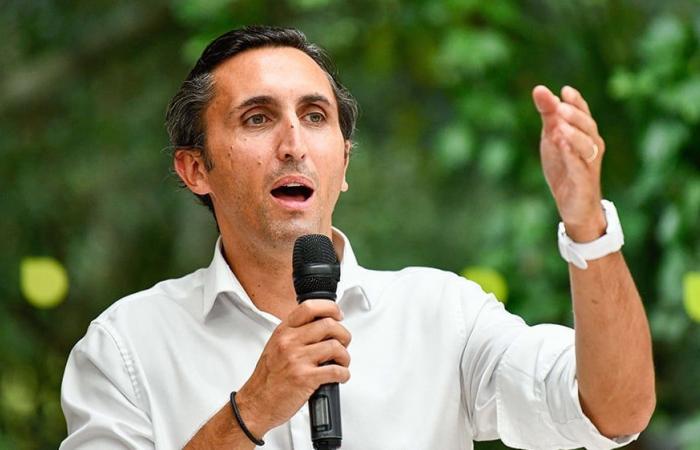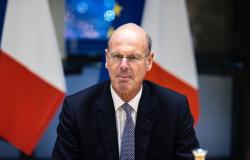
During his speech upon taking office, François Bayrou placed himself in the footsteps of a great king of France, Henri IV, whose rural ties and reconciliatory ambition he said he shared. However, for the moment, the first steps of the new Prime Minister seem to lead him more towards Henri … Queuille.
Who remembers this politician who in his time was a record holder for government longevity? Twenty-one times minister under the Third Republic and the Fourth Republic, “little father Queuille” was also three times president of the council. Very popular during his lifetime, he nevertheless became the symbol of the ineffectiveness of a regime running on empty, because Queuille had theorized a form of cynical maintenance in power through inaction.
Will François Bayrou, now Prime Minister, try to survive by becoming the “Buddha of immobility”? If the comparison is obvious, it is because François Bayrou seems to have adopted the famous maxim of Henri Queuille: “There is no problem urgent enough in politics that a lack of decision cannot resolve. »
During his visit to Rue de Grenelle (1993-1997), François Bayrou, then Minister of Education, had certainly first attempted to reform the country, putting on the table a controversial project to reform the Falloux law on public education. . A million people in the streets put an end to this ambition and pushed the neo-minister to radically change his method.
Promises only bind those who listen to them.
François Bayrou then elevated the word “consultation” to the rank of ministry motto, opening a long cycle of all-out negotiations. His detractors consider that he thus bought social peace by handing over the keys to the house to the SNES. This is the meaning of Laurence Rossignol's cruel words about the president of MoDem and his long stint in National Education: “this one has a pretty good record since he didn’t do anything…”. Simone Veil was also distinguished by a scathing comment against the former Minister of National Education, having accused him of betraying Balladur for Chirac in 1995 in order to remain in his post and “continue to do nothing”.
From Grenelle to Matignon, should we fear that this method will continue at Matignon?
Take the case of pensions, a thorny subject which divides its own majority. The Prime Minister, caught between a Left which wants to reconsider age measurements and a Right which makes it a red line, has chosen… not to choose. O reform suspend your flight! Quickly, we open a conference which will debate, save a little time.
In the meantime, everyone can see what they want. We reopen the file, we can debate the age, but if the conference is not conclusive, it will not change the current reform. Except that there will be a new draft law on pensions, even without “global agreement” from the social partners. So, if we are logical, without a global agreement, we should create a new bill which would confirm the balances of the old reform?! “When you are confused, confuse everything. » said Queuille. “When you want to bury a problem, create a commission” said Clémenceau.
-
If Bayrou wants to reunite France, and not just its base, we must therefore meet the RN and LFI electorate and reintegrate them into the democratic game.
Another subject, taxation. While he himself dramatically pointed out the problem of debt and public spending, the head of government did not express himself in his general policy declaration on a new tax on large assets, aimed at replacing the Differential contribution on high incomes (CDHR). He also did not clearly say that household taxes would be kept at the same level. More seriously, he suggested that certain health expenses would increase… forcing his Minister of Public Accounts to vigorously correct the situation the next day. But as Queuille said “ Promises only bind those who listen to them”.
This policy of imbroglio can be understood by the Prime Minister's desire to solidify its base to last. But rather than eyeing little Father Queuille, by resurrecting the proportional passage which did so much harm to France, the Prime Minister should reread the biography that he himself wrote, that of good King Henry.
Henri IV and his white panache, it is the desire to bring together a France divided by confessional struggles around his person; that of making concessions with one's sworn enemies (Paris is well worth a mass) ; finally, that of fighting for a better life for his subjects (the famous chicken in the pot). He is also a traveling king: Henry IV traveled so much across France that he is indisputably the king of France who knew his kingdom best.
If Bayrou wants to reunite France, and not just its base, we must therefore meet the RN and LFI electorate and reintegrate them into the democratic game. Leave the closed chambers of Parliament. Budgetary balances are one thing, but two priorities are on the table: the question of migration and that of purchasing power. The migration issue deserves a mass. To resolve this issue, we must reconnect with the people via the referendum and recover elements of sovereignty ceded to the judges. Henri IV converted to Catholicism, François Bayrou must embrace sovereignism.
The challenge of purchasing power requires panache: we urgently need to wake up productive France through a policy of industrialization, reduction of standards and clarification of our ecological expectations. The State must break with a rentier logic (as demonstrated excellently by Pierre Vermeren) which makes France increasingly resemble the defunct USSR. François Bayrou spent time with Girondin socialism: he embraced liberal Colbertism.
It is at this price that he will become Henri IV or end Henri IVth Republic.





